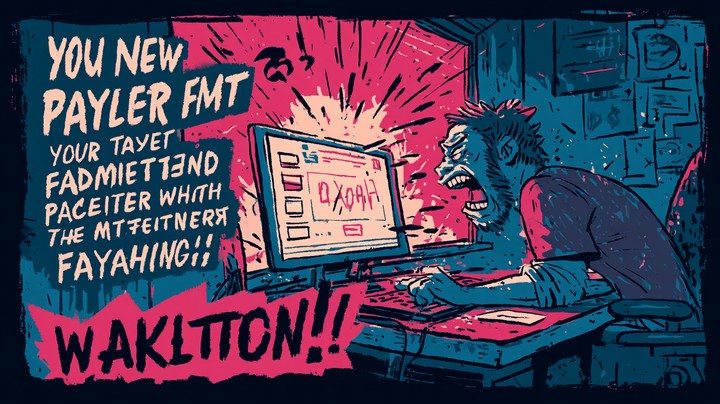Salaries for e-Residents, The Ultimate Guide

In one of my previous posts, I described how VAT taxes work for e-Residents owning a company in Estonia. There, I talked about the most common rules for earnings and dividends. However, there are lots of details and nuisances to know about your pay as the owner of your business. In this post, I offer a more in-depth discussion about salaries for e-Residents.
While I do not represent or talk in the name of the Estonian Tax Office, all the information contained in this post comes from the knowledge from my business “Companio”, and has been verified by my accountants and the Estonian Tax Office. If in doubt, ask your accountant.
The Devil Is In The Details
Accountancy and taxes are difficult topics, especially, when it comes to companies. If your home country is anything like mine, there are lots of weird rules -some of them contradicting other rules- and grey areas regarding what you can and can’t do. Salaries are no exception, but also what you can deduct as a business expense, or how to apply taxes to different types of earnings.
Luckily, Estonia is famous for its clear, fair and transparent business system. It’s simply years ahead of the game. Nevertheless, it still has some subtleties to take into account when it comes to e-Residents. Especially, on how the owners of an Estonian company pay salaries to themselves or other employees.
Estonian law is also strongly based on common sense in lots of different areas. Even though it adds a subtle level of subjectivity to the mix, it makes the system very flexible and -in my opinion- quite fair.
One of the areas where this applies is your salary payments. Being such a delicate topic, emoluments are a common subject of questions. Let’s try to shed some light here…
The Basic Stuff
Ok, so first let’s review the basic stuff. As I mentioned on my previous article, as the owner of your company in Estonia, you are supposed to be doing two different
On one hand, you are the board member of your company. If you are a sole proprietor, you are the one and only director of your business. You are supposed to take care of appointing shareholder meetings, concluding contracts in the name of the company… yes, all the boring stuff.
On the other hand, you are supposedly performing a “professional” work in your company. It may be design, development, customer support, or managing the accountancy and keeping the books.
You then receive a “Board member salary” for the former and an “Employee salary” for the latter. The board member salary is taxed in Estonia, while the employee salary is not.
The de-facto accepted rule is that you do a distribution of 20%/80% of your salary. That means that if you, say, assign one month 2000€ in salary, you pay yourself 400€ as “Board member salary”, and 1600€ in “Employee salary”. Note: after 2019, if you are a digital nomad doing consultancy/freelancing work, it’s now common to assign yourself 100% employee salary only (which is not taxed in Estonia) and not assign any board member salary. See the section “2019 Update: You Can Now Pay Yourself Employee Salary Only”,
Your company is supposed to pay, for your board member salary, an income tax of 25%, and a social tax of 33% (applied to both the gross board member salary plus the income tax). You can avoid the social tax if you have proof of contribution to social tax in any other European country (form A1).
So of those 600€ of your board member salary, your company will pay 150€ in income tax, and 247,5€ in social tax, for a total of 397,5. That’s roughly 20% of your total salary. Next, if you are resident in a country with residence-based personal taxation, you will pay taxes for your overall earnings in your annual tax report.

The Distribution Between Your Salaries
Note: things have changed from 2019. Please, see next section.
So the brilliant first question we all do when we understand the larger our board member salary gets the more taxes we pay is: “can I set my board member salary percentage to 0%?”
Then the answer is usually: “well, you can, but then someone -the Estonian Tax Office- may wonder who’s performing your board member tasks… And why this person isn’t being paid”. So common advice is
Then the next brilliant question is: “ok, so if I do something super-technical and earn a lot of money, can I reduce the percentage to almost zero?”
Here’s when the Estonian “common sense” application of the law kicks in. The idea is that, in the beginning, when your
How much is that? Well, if your emoluments are 1000€ a month, 20%-30% is a good number. If you are on the 5000-10000€ payment range -you lucky bastard- you can probably go for a much lower percentage.
Here, the amount is the key, not the percentage. 10% of 10.000€ is 1000€ which is absolutely fine for a board member salary, and more than a 30% of 1000€. Make it proportional, and use your common sense.
2019 Update: You Can Now Pay Yourself Employee Salary Only
It has been determined by the Estonian Tax Office that you can actually pay yourself Employee Salary only. This only applies if your activity is performed outside of Estonia, meaning, you are not a tax resident in Estonia.
This has some implications. First and foremost, you are obviously responsible for reporting and paying your taxes in your country of residence. If you are a digital nomad, and don’t spend more than 183 days a year in any specific country, you can however avoid paying personal taxes.
The second important point to have in mind is that, if you assign yourself only the Employee Salary, you won’t be able to enjoy the Daily Allowance. Obviously, your business trips will still be justifiable expenses that your company can pay, but you won’t be able to benefit from the Daily Allowance.
It’s important to note that this change is mostly applicable to freelancers or sole proprietors. If your company has several shareholders or board members, or any of the members of the board operates from Estonia, this scenario does not really apply to you.
Does Your Salary Need To Be Constant?
Short answer: No. Long answer: No, but use your common sense (again). So what do I mean by that?
For context, I usually assign myself different salaries throughout the month, and rarely they sum up the same amounts month after month. Plus, I never pay myself on a fixed day of the month. So as far as I know, there’s a lot of flexibility here. That said…
Now imagine this situation: you are a micropreneur with your OÜ company in Estonia. You assign yourself a salary between 800€ and 1100€. Then, one month, your company actually loses money while you decide to sky-rocket your bonus to 10.000€, Standard & Poor’s style.
According to the law, you don’t even need to assign yourself a salary at all. Theoretically, you are totally free to pay yourself the amount of money that you consider appropriate, but situations like the one depicted above will certainly raise some eyebrows.
Obviously, if your activity is perfectly legal, and your books are in order, you have nothing to worry about, but it’s always better to use the proportionality rule when assigning salaries. They don’t need to be the same amount, or be paid regularly, or even on a fixed date, but it’s better not to play the rollercoaster game with your payrolls.

What About The Double Taxation?
The e-Residency program’s been specially designed for digital nomads. One of the reasons is obviously because it gives you geographical independence, and allows you to start and manage your business completely online.
However, another important reason is avoiding clashes with other tax offices. There are lots of potential problems if you are the sole proprietor of your business and run it from a different European country (like France, or Germany, or Spain). One of them is your company being declared tax resident -and thus having to pay taxes- in that other country.
This problem has yet to be properly addressed by the e-Residency program. Related to that one, double taxation is always mentioned as another concern for non-nomad entrepreneurs considering a company in Estonia.
Theoretically, there are double taxation treaties between most European countries and Estonia. These agreements prevent precisely the situation where you will pay taxes twice, both in Estonia and in your country of residence. In that sense, you need to understand that you and your company are different entities. Ideally, your company pays taxes in Estonia, while you pay taxes on your personal income (distributed dividends and salaries from all over the globe) in the country where you are tax resident.
Double Taxation On Salaries For Non-Digital Nomads
However, if you are not a digital nomad, you will, unfortunately, be subject to a small percentage of double taxation on your salary.
From your board member salary, you pay two different taxes: income tax and social tax. The former is a tax that is applied to your company. That means that it’s the company, not you, who pays it.
That means that once this salary gets to your personal bank account (alongside the Employee salary), you are liable for paying taxes for it. In my experience, it’s very hard to claim back the income tax that you paid for your board member salary back.
Regarding the latter, unless you can provide proof of paying social security anywhere else (form A1), you will have to pay social tax for your board member salary while you may not benefit from it, meaning, you won’t have access to health insurance or a pension (this is not always the case, more on this below).
Conversely, your Employee salary is not taxed at all in Estonia, so there’s no double taxation here. You will pay personal taxes for it on your annual tax report.
IMPORTANT: Please, have a look at the “legal considerations” below if you are a not a location independent entrepreneur (meaning, you are a tax resident in any country) before assigning yourself a salary.
Hiring And Paying Employees
Another very obscure topic, there’s no information whatsoever on the e-Residency website or any official page from the Estonian tax office in English.
The question is: “Can you hire employees for your Estonian company?“
And the answer is “Yes“. The details are different depending on where they are tax residents, though. The taxes to be

Hiring And Paying Employees Outside Of Estonia
If your employees are outside of Estonia, the good news is: you don’t pay a dime in taxes. Zero, rian,
Why? These employees, regardless of whether they are tax resident in a “foreign” country -to Estonia, anyway- or they are digital nomads, have no obligations with the Estonian government or tax office.
However, there are two important things to consider here.
First, you are not contributing to their social security or pension. That means that, unless they have private health insurance of some kind and a private pension plan, they may not have access to public healthcare of retirement annuity.
Secondly, these employees are responsible for paying their taxes. Most probably your employees will… but just in case, it’s always a good practice to include a clause in your employment contract specifying that the employee is liable for paying his or her taxes in the corresponding residence country, if any.
Legal Considerations
When hiring employees from outside of Estonia, both internal (members of the company) or external, you need to be careful with some important aspects.
As we discussed before, the Board Member Salary pays taxes in Estonia, because it is considered that the job is taking place in Estonia. However, the employee salary does not pay taxes in Estonia if you live and work outside of Estonia. Here, the emphasis “In Estonia” is important.
The e-Residency program of Estonia was designed for location independent entrepreneurs. As non-tax residents of any country, they don’t need to submit personal tax reports or bother about local labor laws when their companies pay their salaries.
If you are a tax resident of any country, things are different. Some countries require you to declare the employment status of this employee and pay social taxes for him or her. That is especially true for European countries. If you are employing people from France, Italy, Spain, or Germany, European laws dictate that you need to pay social taxes and the applicable social benefits for this employee.
A similar situation may happen in other countries as well, such as Ukraine, or El Salvador, to name but a few. It is always recommended to consult a local tax advisor or accountant in the country where you are going to hire your employees to know all the legal details beforehand.
So what can you do if you are required to pay social taxes for your employees in another country, or you can’t simply employ them and pay their salaries? Well, there are three main options.
First, your company can register as a social taxpayer in the country where your employees live. This may or may not require your company to be registered or open a branch in the country. In Estonia, for example, a foreign European company can easily become a taxpayer and start paying social taxes for Estonian employees without needing to register as a company or branch in Estonia.
Secondly, your employees could register as freelancers or professionals in their respective countries. In that scenario, you won’t be paying them salaries. They will invoice you for their services every month. This is the most optimal solution for many reasons. They are in charge of submitting their tax reports in their countries, they get access to all social benefits, including healthcare and pension scheme, and your company pays zero taxes for them.
Finally, for European members of the board, you can opt to pay yourselves a full board member salary (100%), that pays taxes in Estonia. Thanks to European double taxation treaties, you are not required to pay social taxes twice, so if your work is considered to happen in Estonia, you will pay Estonian social taxes, and don’t need to pay additional taxes in the country where you live. This may apply to non-European board members as well if their countries have taxation treaties with Estonia.
As mentioned, it is always a good idea to talk to a local tax advisor or accountant to make sure the solution you choose is completely compliant with the laws of that country.
Hiring And Paying Employees From Estonia
If your employees are tax resident in Estonia -meaning, they spend more than 6 months a year there- their employment situation is completely different. As Estonian employees of an Estonian company, they will get all the benefits of working for a national company, including social security and pension.
Hence, you will need to pay not just income tax, but also social tax, and make sure the latter covers the minimum requested by the authorities (around 155€). Besides, there are some other minor taxes added into the mix.
This is an example of the taxes that you need to pay for a standard salary of 1000€ to an Estonian employee, as of 2019.
| Gross Salary/Wage: | 1000€ |
| Social Tax | 330.00€ |
| Unemployment insurance (paid by the employer) | 8.00€ |
| Total Cost for employer(Wage Fund) | 1338.00€ |
| Funded pension | 20.00€ |
| Unemployment insurance (paid by the employee) | 16.00 |
| Income Tax | 92.80 |
| Net Salary/Wage | 871.20 |
Where do those 92.80€ come from? The income tax in Estonia is 20% flat, but there is a reduction in the taxable income if you are a tax resident in Estonia. For a monthly salary of 1000€, the first 500€ are tax-free. So from 1000€, -36€ (pension + unemployment benefits) we have 964€, from these, the first 500€ are tax-free, so that leaves us with 464*20%, which is 92.80€ in income tax.
So you pay some taxes, but it’s definitely not that much, and it’s worth it if you want to have employees in Estonia.
Can You Or Your Employees Benefit From Social Security?
Yes, believe it or not, employees living and working abroad can benefit from Estonian social security and use Estonian public healthcare in any of these situations:
- A working employee, with an employment contract, working for more than a month, as long as the minimum social tax is paid.
- Freelancer or employee with a services contract if the minimum social tax is paid for the whole duration of the service contract.
- Member of the board -i.e: you- if minimum social tax is paid.
Minimum social taxes are 33% of minimum wage, currently 470 x 0,33 = 155,10€.
Why is this important, you may ask, if you are a digital nomad and/or live outside of Estonia? Because it gives you access to the European Health Insurance Card. With this card, you have free public health insurance all over Europe.
Conclusion
One of the most recurring questions for e-Residents owning a company in Estonia is how salaries work. It’s an obscure topic. Taxes, social security, contracts, how to assign them… In this post, “Salaries for e-Residents”, I try to shed some light on the matter.
However, if in doubt, it’s always wise to ask for professional advice by your accountant.




Comments ()